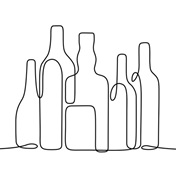Rights groups are accusing Cambodian authorities of arresting drug addicts and forcing them to take part in trials of experimental detox drugs, claims denied by an official of a government anti-addiction agency.
Police recently rounded up a group of addicts and brought them to Phnom Penh's Orkas Knhom, or "My Chance" treatment facility, where they were pressured to sign up for a medical trial, according to local human rights group Licadho.
"Licadho has great concern about whether people have understood what they have consented to, or what they were coerced into," its director, Naly Pilorge said.
Cambodia's National Authority for Combating Drugs (NACD) is overseeing a trial involving at least 17 addicts given a drug substitute called Bong Sen produced by a Vietnamese company, Ben Tre Fataco General Import-Export and Trading Services.
Accepted procedures
Reports of coercion have alarmed diplomats and United Nations officials, who say internationally accepted procedures should be followed.
The US embassy in Phnom Penh sent an official to meet with representatives of the Cambodian government to discuss reports Bong Sen, administered to block craving, was being forced on some addicts.
"We had concerns specifically about informed consent," said the embassy's spokesman, John Johnson.
But Neak Yuthea, director of the prevention and education department at the NACD, dismissed claims addicts were arrested or picked up off the streets and forced to take part in trials.
'All voluntary'
"The patients here are all voluntary. This medicine detoxes heroin addicts," he said, adding that Bong Sen was approved by Vietnam's health ministry.
Korsang, a group that seeks to educate and assist drug addicts, released a statement on Monday insisting drug users be given the right to decide if they want to take the medication.
The World Health Organisation (WHO) has raised questions about the way the programme is being implemented.
It said an independent ethical review committee should examine new drugs before they are tested, and those involved in trials should be informed about the components and effects of new drugs.
"We have yet to understand how this new drug was introduced in Cambodia, apparently without rigorous review and due process on bioethical standards," said Michel Thieren, acting head of the WHO in Cambodia.
A recent paper published by the WHO cited a study conducted in Cambodia in 2008, showing only one of 405 people entered a drug treatment centre voluntarily.
The majority of the residents were referred by their families while others were sent through legal procedures, it said. - (Jared Ferrie/HealthDay News, December 2009)




 Publications
Publications
 Partners
Partners










